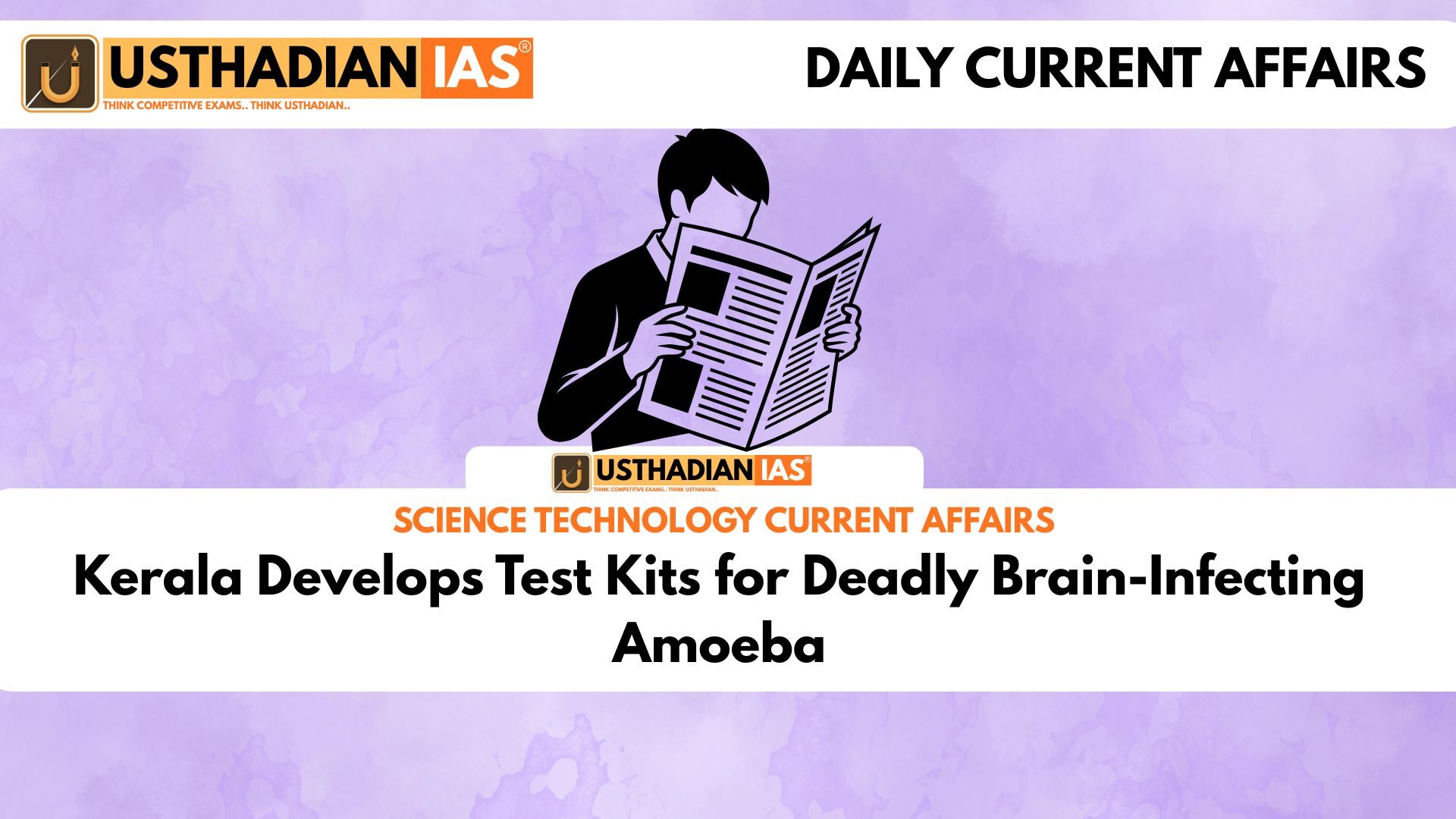Kerala lab makes a bold move
Kerala Develops Test Kits for Deadly Brain-Infecting Amoeba: Kerala has taken a major leap in public health. The State Public Health Laboratory in Thiruvananthapuram has developed its own molecular test kits to detect deadly brain-infecting amoeba. This is the first time a lab in the state has confirmed the presence of Acanthamoeba spp., a dangerous parasite, in a human sample using a locally made test. Until now, Kerala had to depend on labs outside the state, like PGI Chandigarh, for confirmation.
What the test kit does?
The newly developed PCR-based diagnostic kits can detect five deadly types of free-living amoeba (FLA). These are organisms that live freely in the environment but can sometimes cause severe infections. The five amoebae covered are:
- Naegleria fowleri
- Acanthamoeba spp.
- Vermamoeba vermiformis
- Balamuthia mandrillaris
- Paravahlkampfia francinae
Out of more than 400 free-living amoeba species, only six are known to cause infections in humans. Kerala’s new test covers most of them, making it a huge scientific step.
Why this matters for the state?
Cases of amoebic meningoencephalitis—a brain infection with very high fatality—have been on the rise. The condition progresses quickly, and early detection is crucial for survival. Previously, doctors could only make presumptive diagnoses based on microscopic findings in cerebrospinal fluid (CSF). This led to trial-and-error treatments, often with poor outcomes.
Now, with PCR testing, doctors can pinpoint the exact pathogen. This means treatment can begin faster and with more accuracy. If the amoeba Naegleria fowleri is found, officials can also test local water bodies to prevent further infections.
Voices from the field
Dr. R. Aravind from the Government Medical College says, “We can now skip presumptive therapy and go straight to targeted treatment.”
Dr. S. Sunija, director of the lab, proudly stated, “We don’t have to depend on other labs anymore. This is a game changer for Kerala.”
Bigger picture
This isn’t just about one state. It shows how local innovation can tackle serious public health threats. With climate change and rising temperatures, water-borne pathogens are becoming more common. Having in-house capabilities to test and respond quickly is essential.
Historically, the first amoebic brain infection was reported in Australia in 1965. Since then, India has seen scattered cases, but diagnosis remained a challenge due to lack of specific tools. Kerala’s initiative can inspire other states to set up similar capabilities.
Static Usthadian Current Affairs Table
| Summary | Details |
| Location | Thiruvananthapuram, Kerala |
| Developed by | State Public Health Laboratory |
| Tool Type | PCR-based Molecular Diagnostic Kits |
| Pathogens Detected | Naegleria fowleri, Acanthamoeba spp., Vermamoeba, Balamuthia, Paravahlkampfia |
| Confirmed Sample | Human CSF (Cerebrospinal Fluid) with Acanthamoeba spp. |
| Clinical Use | Diagnosis of Amoebic Meningoencephalitis, Acute Encephalitis Syndrome |
| Previous Lab Dependency | PGI Chandigarh |
| Public Health Impact | Early detection, reduced diagnosis time, better treatment planning |
| First Global Case Record | Australia, 1965 |
| Indian Link | Kerala is first Indian state to confirm via in-house kit |








